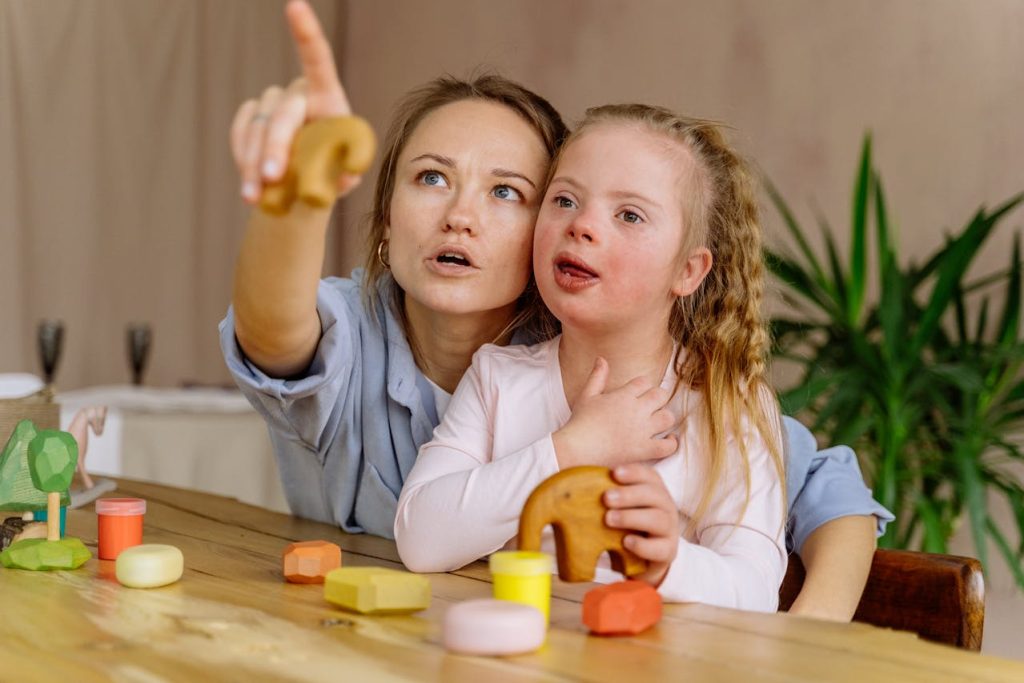When children need additional support to thrive academically, special education resources become essential tools for families navigating the educational system. These services exist to help students with disabilities, learning differences, and developmental needs access meaningful education alongside their peers.
Parents often feel overwhelmed when first learning about the options available, which is why understanding the breadth of resources can make such a significant difference. This article explores various special education services, support systems, and professional resources that families encounter as they work to secure appropriate educational opportunities for their children.
Section 504 Plans and Accessibility
Section 504 plans provide accommodations for students with disabilities who do not qualify for an IEP but still require modifications to access their education fully. These plans are less formal than IEPs and focus primarily on removing barriers to learning rather than providing specialized instruction.
Common accommodations include extended time on tests, preferential seating, modified assignments, or assistive technology. Schools are required to implement these accommodations across all educational settings to maintain equal access for students with qualifying conditions.
Support Resources for Parents Raising Children with Autism
Parents of children with autism spectrum disorder benefit from connecting with specialized organizations, such as Generation Kadima, that provide information about evidence-based interventions and educational strategies. National and local autism organizations often offer workshops, support groups, and resource libraries that help families understand their rights within the educational system.
Many communities have parent training programs that teach specific techniques for supporting communication, social skills, and behavior management at home. Online forums and local meet-up groups create opportunities for parents to share experiences and learn from others facing similar challenges.
Accessing Speech and Language Services
Speech-language pathologists work within schools to address communication difficulties that affect a student’s ability to participate in classroom activities and social interactions. These services target areas such as articulation, language comprehension, expressive language, pragmatic language skills, and alternative communication methods.
Therapy may occur individually, in small groups, or within the general education classroom, depending on the student’s needs and goals. Schools typically provide these services when communication difficulties significantly impact educational performance.
Resources for Families of Children with ADHD
Attention-deficit/hyperactivity disorder affects many students who struggle with focus, organization, impulse control, and executive functioning skills in educational settings. Organizations dedicated to ADHD awareness maintain extensive libraries of research-based information about classroom accommodations, medication management, and behavioral strategies.
Parent coaching programs help families develop consistent routines and structure at home that complement school-based interventions. Many communities host ADHD support groups where parents can discuss challenges specific to raising children with attention differences and learn practical strategies from mental health professionals and experienced parents.
Occupational Therapy in Educational Settings
Occupational therapy addresses fine motor skills, sensory processing, visual-motor integration, and daily living skills that students need to function successfully in school environments. Therapists help students develop strategies for handwriting, using scissors, managing classroom materials, and regulating responses to sensory input.
Services may focus on building foundational skills or adapting the environment and tasks to match student abilities. The goal centers on enabling students to participate as independently as possible in all school activities.
Resources for Learning Disabilities Support
Learning disability associations provide families with current research, educational advocacy guidance, and connections to specialists who understand specific learning challenges. These organizations often maintain directories of tutors, educational therapists, and assessment professionals who work with students with dyslexia, dyscalculia, dysgraphia, and other learning differences.
Many offer webinars and publications that explain how learning disabilities affect academic performance and what instructional approaches show the most promise. Parent chapters exist in many regions, creating local networks of support and shared knowledge.
Physical Therapy Services in Schools
Physical therapists working in educational environments focus on gross motor skills, mobility, strength, and physical access to all areas of the school campus. These professionals help students with physical disabilities or motor delays participate in physical education classes, navigate school buildings, and engage in playground activities.
Services might address wheelchair mobility, using adaptive equipment, improving balance and coordination, or building endurance for daily activities. Schools provide physical therapy when a student’s physical abilities directly affect their capacity to benefit from educational programming.
Behavioral Support and Positive Interventions
Positive behavioral interventions and supports represent a framework that schools use to create environments that promote appropriate behavior and prevent challenging behaviors from occurring.
This approach involves teaching expected behaviors explicitly, reinforcing positive choices, and analyzing why problem behaviors happen to address underlying causes. Behavior specialists and school psychologists often lead these efforts by conducting functional behavior assessments and developing behavior intervention plans. The focus remains on proactive strategies rather than purely reactive consequences.
Assistive Technology and Adaptive Tools
Assistive technology encompasses any device or software that helps students with disabilities access curriculum and demonstrate their knowledge more effectively. Options range from low-tech solutions like pencil grips and graphic organizers to high-tech tools including text-to-speech software, speech recognition programs, and specialized communication devices.
Schools are responsible for considering assistive technology needs during IEP meetings and providing necessary tools when they are required for a student to benefit from their education. Technology specialists often collaborate with teachers to implement and troubleshoot these tools in classroom settings.
Support for Gifted Education Needs
Gifted education resources serve students who demonstrate exceptional abilities and require more advanced or accelerated curriculum to remain engaged and challenged. State and national gifted education associations offer information about identification processes, twice-exceptional students who are both gifted and have learning differences, and advocacy for appropriate services.
Parent networks focused on gifted education provide forums for discussing the social-emotional needs of highly capable students, which can include perfectionism, asynchronous development, and finding appropriate peer groups. Many universities offer summer enrichment programs and talent development opportunities that complement school-based gifted services.
Transition Planning for Older Students
Transition services prepare students with disabilities for life after high school by addressing post-secondary education, employment, and independent living skills. These services typically begin in the early teenage years and become more intensive as students approach graduation.
Schools connect families with vocational rehabilitation services, community colleges with disability support programs, job training opportunities, and independent living centers. The transition planning process involves exploring student interests and goals while building practical skills needed for adult life.
Mental Health Resources in Schools
School-based mental health services provide counseling and therapeutic support for students whose emotional or behavioral challenges interfere with learning and social relationships. School counselors, social workers, and psychologists offer individual and group counseling, crisis intervention, and connections to community mental health providers.
These professionals work with families to address anxiety, depression, trauma, and other mental health concerns that affect school performance. Many districts partner with community mental health agencies to expand access to services beyond what school staff can provide alone.
Special Education Advocates and Support
Special education advocates serve as knowledgeable allies who help families understand their rights and navigate complex educational systems. These professionals may be lawyers, former educators, or parents who have gained expertise through personal experience and specialized training.
Advocacy organizations often maintain referral lists and some offer pro bono services for families with limited financial resources. Parent training and information centers funded through federal grants provide free advocacy training and support to families in every state, helping parents become effective advocates for their own children.
The landscape of special education resources extends far beyond the classroom, encompassing therapies, support networks, advocacy services, and specialized professionals who work together to support student success. Families who understand the full range of available resources can make more informed decisions about which services best meet their children’s needs.
While the process of accessing and coordinating these resources can feel complex, numerous organizations and professionals stand ready to guide families through the system. Knowing what resources exist and where to find them empowers parents to become effective partners in their children’s education, creating pathways for students to reach their full potential regardless of the challenges they face.


